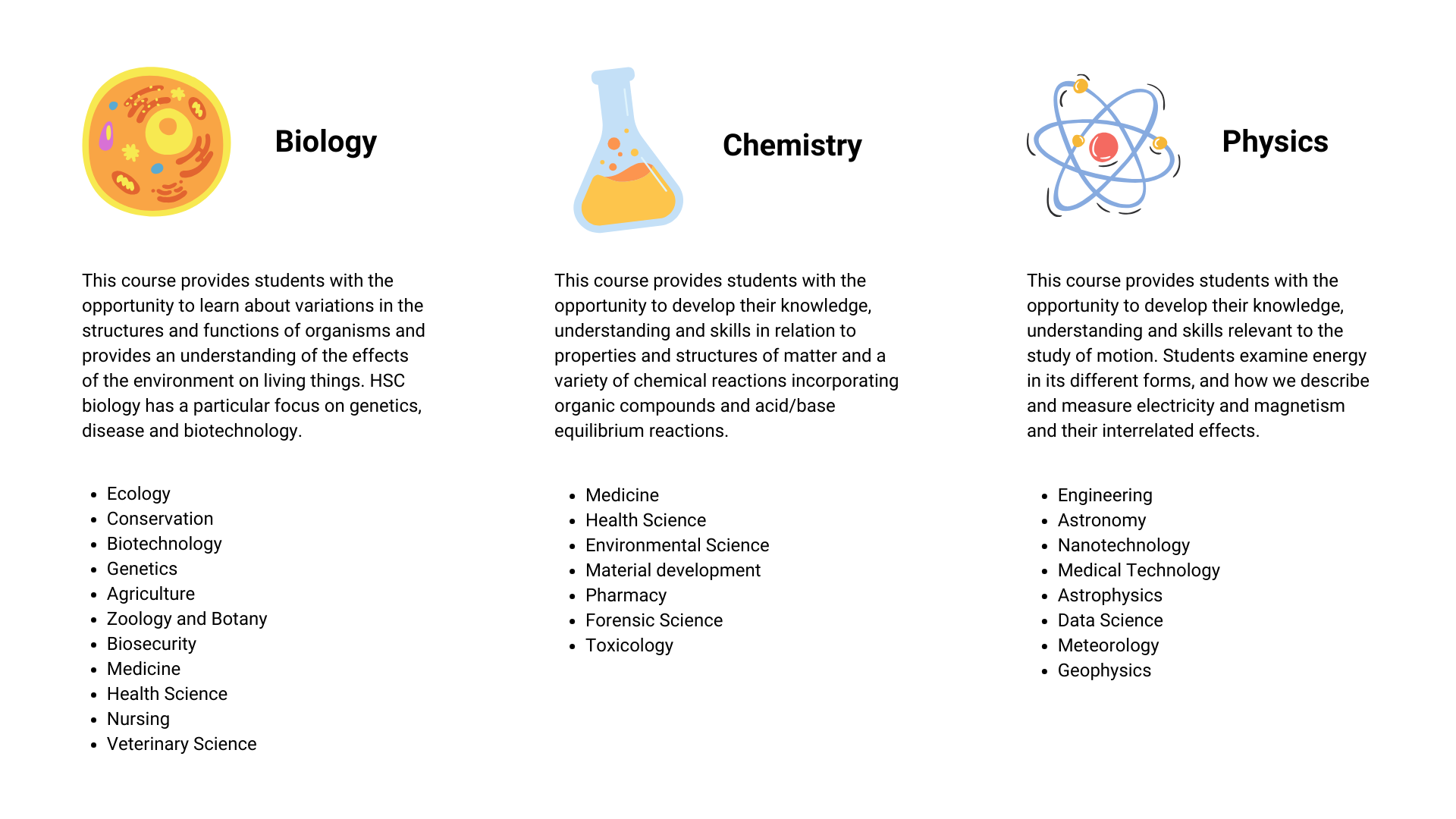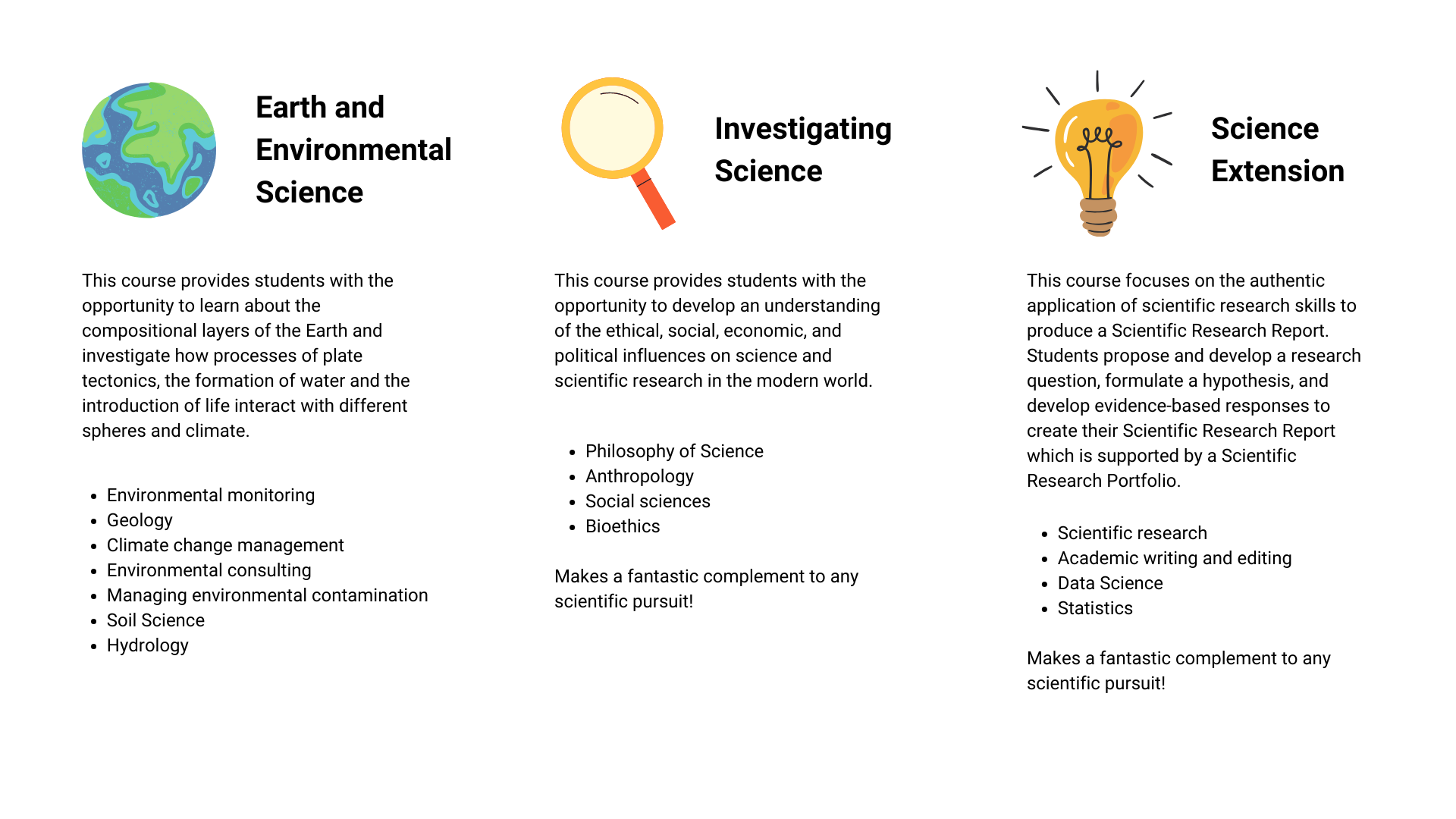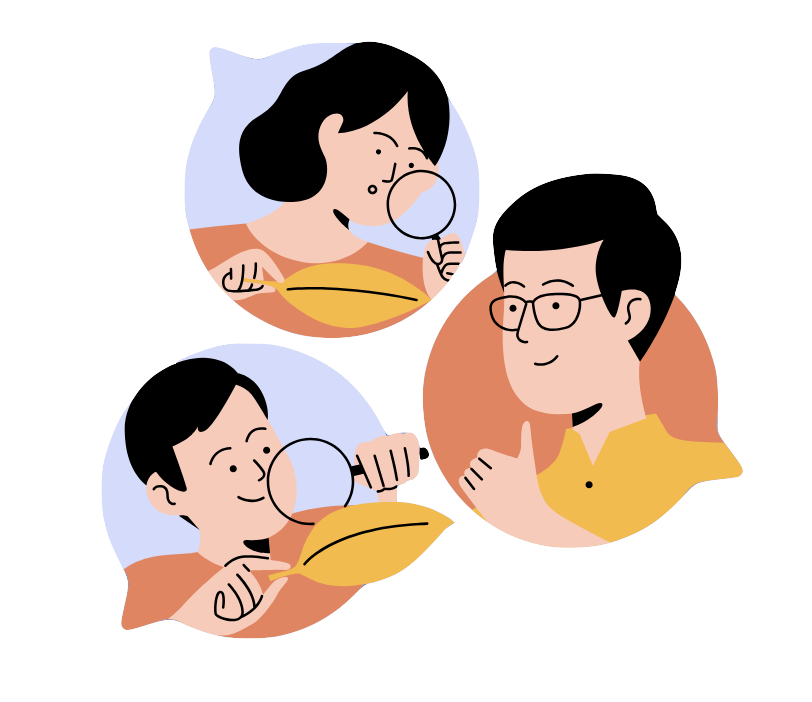Throughout Kindergarten to Year 10, students across NSW learn about science. Which science? All of them of course! From gravity to grapes and chemical reactions to climate change, science at school is as broad as it is foundational. Learning about the sciences all together in a single subject helps us to understand how scientific processes and thinking skills are deeply connected. So, you might be wondering why it all changes when you hit Year 11.
1. Why is science so split up in Year 11 and 12?
As you get further along your educational journey, you will find that your subjects become more and more specific. This is a process known as specialisation.
If you choose to study science in university, you will find yourself spending whole semesters or years of study learning about topics represented by a single dot point in HSC syllabi. Scientific researchers might spend three or four years researching a species of coral, a type of chemical bond, or a specific medical treatment for their PhD.
In Year 11, suddenly science is split into many different available subjects including:
- Biology
- Chemistry
- Physics
- Earth and Environmental Science
- Investigating Science
- Science Extension
The beauty of specialisation is that you can choose to learn about what you're interested in and gain a deep expertise in the topics that you are passionate about.

2. How do I decide which science to take in Year 11 and 12?
If you want to take on one or more (even better!) science subjects for the HSC, you should first and foremost consider taking subjects you're interested in.
Look at the NSW Education Standards Authority (NESA) subject selection website for information on what is taught in the particular science that you are thinking about. Talk to family, friends, tutors or teachers to get a better idea of what it’s like learning about that science.
If you are interested in studying a degree in the field of science, technology, engineering, or mathematics (STEM), you can check out a few university websites and see what HSC subjects they recommend. Sometimes you can get bonus ATAR points if you do well in those specific subjects!
Check out the university pages below to find out more:
3. What does each science involve in Year 11 and 12?
Check out this nifty summary of HSC science subjects and their associated university majors and careers to give you an idea of what they involve and where they could lead in the future:


Written by Bill Scott
Bill is an experienced high school tutor passionate about conservation, environmental management and data-driven ecology. He studies a Bachelor of Science, majoring in Ecology and Evolutionary Biology as well as Data Science at the University of Sydney.




